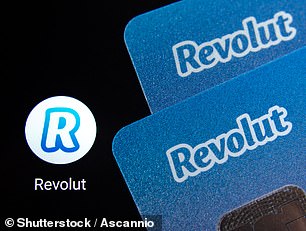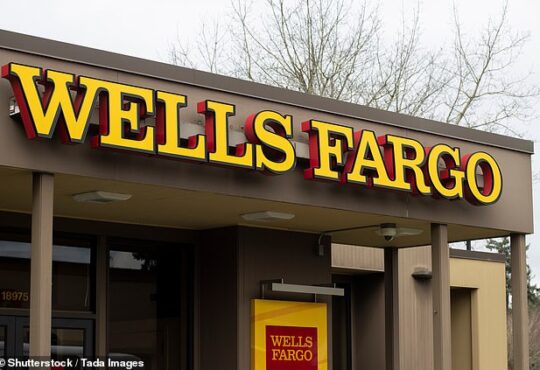
Money market accounts offer higher yields than checking accounts and greater access to your money than savings accounts. They do have some limits: Many allow you to only make six transactions a month. But that may not be a problem if you use a credit card for your day-to-day purchases. The best money market accounts offer a high yield, along with few fees and great customer service.
Why trust us
We evaluated over 40 data points on more than 150 money market accounts, looking at fees, yields, accessibility, minimum requirements, customer satisfaction and more to come up with the best money market accounts.
Annual percentage yields (APYs) and account details are accurate as of July 14, 2023.
Best money market accounts of July 2023
Comparing the best money market accounts
Methodology
Fees 30%
We believe most bank fees should be a thing of the past. They can drag down your savings and eat away at your funds when, really, your bank account should be helping you to save and manage money. We strongly considered whether financial institutions had monthly service fees (whether they could be waived if so), and whether there was an excess transaction fee (and how much it was if so). Banks with no fees and smaller fees ranked higher.
APY and accessibility of funds 30%
Not all money market accounts are created equal, of course. Yields can vary greatly and some accounts don’t allow for a debit card or even an ATM card. Accounts with higher yields and better fund accessibility scored better and ranked higher in our methodology.
Customer Experience 21%
When an organization holds hundreds to, potentially, thousands of your hard-earned money, it’s nice to know that you can expect interactions to be a pleasant experience. Ratings and reviews from the Better Business Bureau and Trustpilot were a part of our analysis. We also considered whether there was live chat availability, because not everyone likes to make phone calls.
Digital Experience 9%
Most Americans use some form of online banking. We considered whether you could access the account through a browser (like Chrome and Firefox) and how well-rated the mobile apps were on the Apple App Store and the Google Play Store.
Minimums 5%
The best money market account in the world doesn’t matter to you if the minimum deposit requirement isn’t affordable. We looked at whether an organization had a minimum opening deposit requirement and whether there was a minimum balance required to avoid a monthly fee.
Availability 5%
We prioritized money market accounts that are available to the entire nation. This means that credit unions with limited membership and banks that are limited to operating in a few states weren’t able to score full points.
Why some banks weren’t picked
Money market accounts from some of the largest banks in the nation didn’t make our list. This is typically because the most popular financial institutions don’t offer the best interest rates. They don’t need to feature spectacular yields to draw in customers; they’re already top-of-mind for thousands of people.
What is a money market account?
A money market account offers many of the features found in a savings account and a checking account.
Like a checking account, you may be able to make transactions with a check, debit card or electronic transfer.
Like a savings account, the number of allowed transactions may be limited for certain methods. But, in general, money market accounts offer higher interest-earning possibilities than traditional savings accounts.
The balance of features might work well for your financial management. You’ll likely find more flexibility than a traditional savings account but more interest-earning possibilities than a checking account.
How a money market account works
A money market account (MMA) works like a hybrid of a checking and a savings account.
For example, you have check-writing privileges (and maybe a debit card) like you would in a checking account. But you typically earn a high interest rate and are limited on the number of transactions you can make each month like in a savings account.
When you research money market accounts, keep an eye on the transaction limit and any minimum deposit or minimum balance requirements to avoid getting hit with a fee.
After you open the account, the funds will start to earn interest. Typically, the interest rate is variable, which means the amount of money your funds earn will change over time.
Money market account vs. savings account
While an MMA shares many features with savings accounts, the key difference is how easily you can access your funds.
“If you’re looking for higher interest rates and easy access to your funds, then an MMA may be the right choice for you”, said Trinity Owen, a certified financial education instructor and founder of the Pay at Home Parent. “However, if you don’t need immediate access to your funds or don’t want to worry about meeting minimum balance requirements or paying fees, then a savings account may be the better option”.
The good news is that either type of account can help you set aside funds for savings goals.
Money market account vs. money market mutual fund
While money market accounts and money market mutual funds have similar names, they come with important differences.
Money market accounts are available through federally-insured banks and credit unions. When you open an account, you can expect to earn a variable interest rate and still have your funds protected up to $250,000 by the Federal Deposit Insurance Corporation (FDIC) or the National Credit Union Administration (NCUA).
In contrast, money market mutual funds are available through brokerage firms. Each fund is a group of securities designed to generate gains for shareholders. When you buy shares of a money market fund, the returns will vary based on the underlying investments, not a rate that a single bank sets.
And even though they’re considered low-risk investments that offer steady dividends, they’re still investments, meaning that they’re not insured and you could lose all your funds if the market were to crash.
How do I open a money market account?
If you want to open a money market account, start by comparing different account options online to find one that best suits your needs. Depending on the institution you choose, you could fill out an application online or in person.
Before you sit down to fill in the application, though, gather some items together.
For example, you’ll need to have your Social Security number, a government-issued identity document, such as your driver’s license, and bank account information.
Once you fill in your information, review and accept the terms and conditions, you’ll find out whether you’re approved for the money market account. If so, you’ll be able to transfer funds and officially open the account and start using it. Any debit card or checks should arrive by mail within ten days.
How much money market accounts earn
The exact amount you can earn through a money market account varies. Each financial institution sets its own interest rates, which can vary over time.
You can use our simple savings calculator here.
The average national deposit rate on money market accounts is 0.61% as of June 20, 2023, according to the FDIC. If you deposited $1,000 (and left it alone), that APY would lead to $5.92 in interest earnings over the course of a year.
However, it’s possible to find much higher interest rates. If you found a competitive money market account with a 5% APY, which some of our winners offer, you would see $50 in earnings.
Pros and cons of a money market account
Every financial product has pros and cons. Here’s what to consider about money market accounts.
Starting with the pros:
- Interest earnings. In general, you can often earn more interest through a money market account than a savings account.
- Flexibility. You’ll likely find more transaction flexibility than a savings account.
- Peace of mind. With FDIC or NCUA insurance, your funds are protected for up to $250,000.
Now for the cons:
- Flexibility varies based on the bank: The transaction limitations vary based on the financial institution. Some charge fees for “excess” transactions.
- Variable interest rates: The interest rate tied to your money market account can vary over time.
Choosing the best money market account for you
The right money market account will vary based on your unique needs. As you evaluate your options, consider the following details:
- Interest rates: For most savers, a high interest rate is a top priority. Shop around to find the best rate available.
- Transaction options: Some financial institutions only allow you to access your MMA with old-school checks. Others allow debit and ATM cards. Confirm that you can use the funds in a way that works for your finances.
- Amount of free transactions allowed. You may be able to make as many free transactions as you desire or you may be limited to six.
- Amenities: While online banks tend to offer higher APYs, you may give up access to in-person branch options. Find the right balance for your situation.
- Insurance: Before placing your funds into an account, confirm that the financial institution has the appropriate insurance. For example, accounts with FDIC or NCUA insurance offer coverage up to $250,000.
- Fees and minimums: Some banks require account holders to maintain a minimum account balance. Others don’t. Similarly, some charge a plethora of fees and others don’t. Make sure you are comfortable with the minimum requirements and fee structure before signing up.
Other alternatives to a money market account
A money market account isn’t the right choice for everyone. If you want to go in another direction, consider the following options:
- Checking account: While generally having low yields (if any), checking accounts are a good home base for your cash flow. From this account, you can shuffle money around to pay your bills, invest and put savings away into a higher-yield account.
- Savings account: A standard savings account tends to come with less transaction flexibility than a checking or an MMA. But if you don’t need check-writing privileges and a debit card for all of your funds, one of the best savings accounts might be the right fit.
- Certificate of deposit (CD): If you don’t need regular access to part of your funds and you still want insurance coverage, check out the best CDs. Their APY is typically higher than other deposit accounts and it’s fixed for the duration of the CD term. The catch is that you won’t have access to the funds within a CD for the duration of the term.
Frequently asked questions (FAQs)
You can find money market accounts through online and traditional banks. Online banks tend to offer higher yields, so they’re a good option if you are comfortable managing your finances digitally.
Money market accounts are FDIC insured if they’re offered by banks that are FDIC members. Most banks clearly post on their home webpage (and in their branch lobbies) that they’re a “member FDIC”. Credit union money market accounts may be NCUA insured, which also provides up to $250,000 against loss.
While money market accounts share some features with savings accounts, the key difference is that a money market account comes with check writing privileges (and sometimes a debit or ATM card), which allows you easier access to your funds. To access money in a savings account, you typically have to transfer the funds to a checking account first.
Most banks allow you to write checks from your money market account. Others may limit you to electronic transfers only. If you want check-writing privileges with your money market account, read the fine print to see if this option is offered through your bank.
There is no bank that consistently offers the top rate, since yields often depend on balances and may come with fees. Moreover, banks change their rates all the time. Nevertheless, consult our picks for some of the top yields on the market.




